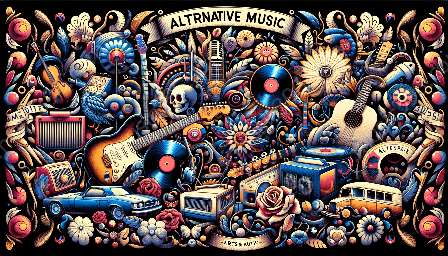Ska music has long been intertwined with themes of identity and belonging, reflecting the social and political landscape of different cultures and generations. With its origins in Jamaica and subsequent evolution in the UK and beyond, ska music has provided a platform for addressing complex and multifaceted issues of cultural identity, and has often served as a reflection of societal tensions and aspirations. Through the lyrics of ska music, artists have expressed the struggles, triumphs, and complexities of identity and belonging, offering narratives that resonate and deeply impact individuals and communities.
Historical Context
To understand how ska music addresses issues of identity and belonging, it's essential to explore the historical context of the genre. Ska emerged in Jamaica in the late 1950s, blending elements of traditional Caribbean music with American rhythm and blues. As Jamaican society underwent significant social and political shifts, ska became a key cultural expression of the era. The music and lyrics often addressed the experiences of the working class, racial tensions, and the broader quest for social justice and equality.
Identity and Cultural Expression
Ska music has provided a vital avenue for individuals and communities to express their cultural identity and assert their belonging within a larger societal framework. Lyrics in ska music often revolve around themes of pride, heritage, and resilience, embodying a sense of collective consciousness and camaraderie among marginalized or oppressed groups. The music has served as a voice for those whose identities have been historically overlooked or disregarded, fostering a sense of empowerment and cultural affirmation.
Political and Social Commentary
Many ska songs have functioned as powerful forms of social and political commentary, addressing issues such as racism, xenophobia, and economic disparities. Through these lyrics, artists have used ska music to challenge systemic injustices and advocate for societal change, urging listeners to confront and reflect on issues of identity and belonging within the broader framework of power structures and societal norms.
Transnational Influence
As ska music gained popularity beyond its Jamaican roots, it took on new layers of meaning and relevance in different global contexts. In the UK, ska music became intertwined with the experiences of multicultural communities, providing a platform to express the challenges and triumphs of navigating dual or hyphenated identities. The lyrics of ska music in the UK often delved into the complexities of belonging in a multicultural society, addressing the tensions and harmonies of coexisting cultural identities.
Rebellion and Subversion
Ska music has often been associated with themes of rebellion and subversion, offering a space for individuals to challenge dominant narratives and celebrate non-conformity. The lyrics reflect the spirit of defiance and resilience, often portraying a deep understanding of the struggles and triumphs associated with carving out one's identity in the face of societal pressures and norms. The music provides a sense of communal solidarity and empowerment, encouraging individuals to embrace their uniqueness and assert their belonging on their own terms.
Modern Relevance
In contemporary contexts, ska music continues to address issues of identity and belonging, resonating with diverse audiences worldwide. The lyrics of contemporary ska artists often confront themes such as cultural assimilation, cultural hybridity, and the complexities of contemporary multicultural societies. The music serves as a soundtrack to ongoing conversations about diversity and inclusion, offering a lens through which individuals can navigate the complexities of their own identities and sense of belonging within an ever-changing global landscape.












































